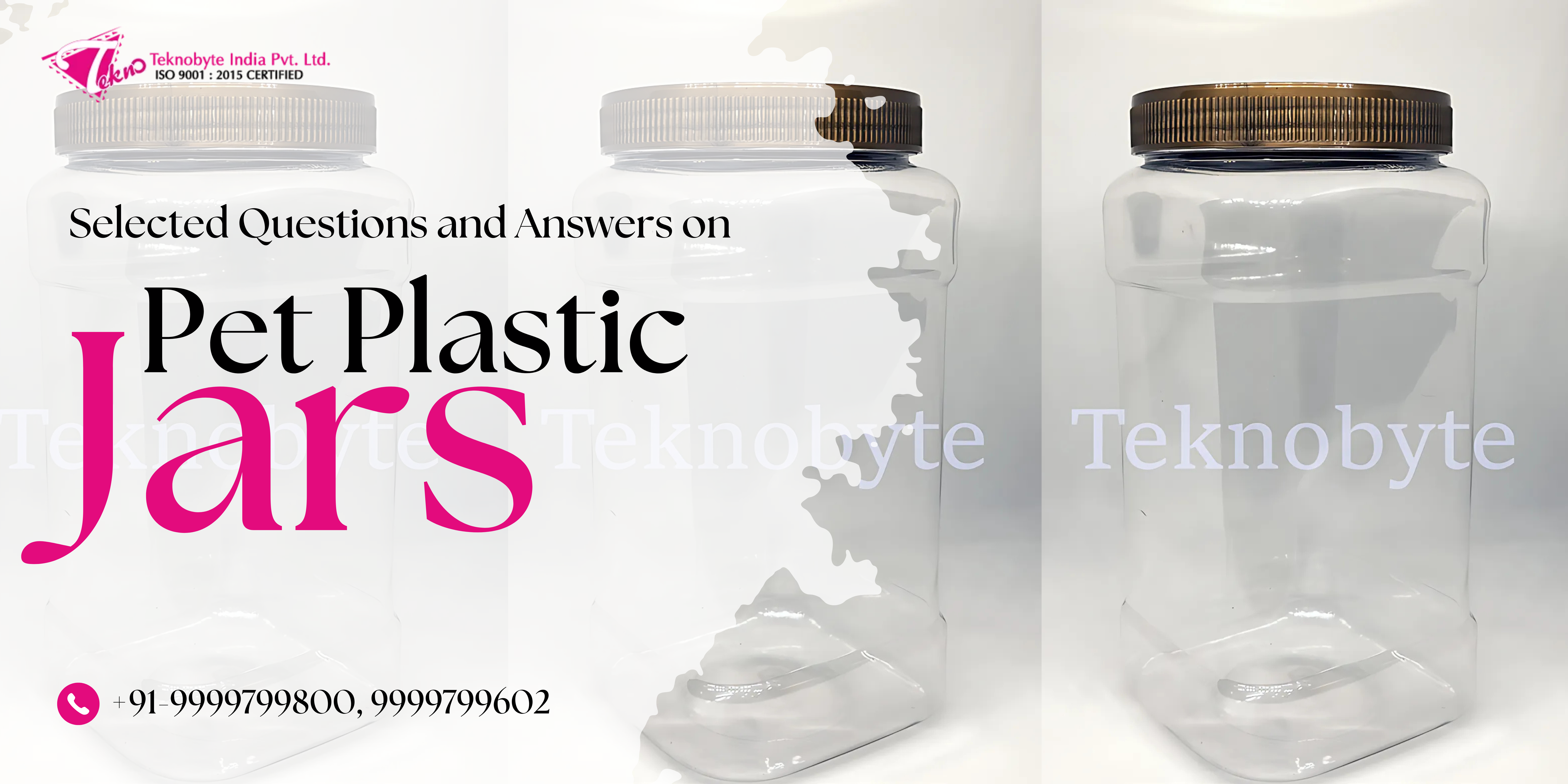PET or Polyethylene Terephthalate stands out due to the following features; of course, it is durable, lightweight and is particularly easy on the environment. Below you’ll find most burning questions and answers on PET plastic jars and some key benefits that would explain why these jars are the way to go for environmentally friendly packaging.
Most Burning Questions and Answers on PET Plastic Jars
Q1. Are PET jars recyclable?
A. Indeed, PET plastic jars can be recycle, they are fully eco-friendly containers which made to be dumped, sorted and recycled for reuse as polyester fibers, new PET containers or construction material. PET has a molecular structure that can be recycle a number of times with very little decline in its quality.
Q2. How the PET jars are recycled?
A. The recycling process typically involves the following steps:
- Collection and Sorting: The PET jars are pick from the recycling bins, and separated from other types of plastics.
- Cleaning: The jars has to wash to remove labels, caps and every other residue that might be remaining at the bottom of the jar.
- Shredding: Clean PET for reduces to small flake size.
- Reprocessing: These flakes are then mold and turned into new products of PET.
Q3. Why is PET recycling important?
A. It increases the shelf life of products made from the materials, reduces the risk of conjunctive employment of incompatible resins and cuts on the resources required to manufacture pristine pet materials increasing its availability in the market thus caters for consumer needs.
Recycling PET jars:
- Reduces landfill waste.
- Efficient in the preservation of the environment by minimizing on the use of raw plastics.
- This is because producing recycled PET means that there shall be low carbon emissions as compared to manufacturing new pet jars.
Q4. Are all PET jars recyclable?
A. Pet jars are mostly recycle and reusable, but it needs to ensure that it bears the recycling symbol denoted by “1” inside the recycling triangle.
Q5. What products made from recycled PET jars?
A. Recycled PET are used to make:
- New PET bottles and jars.
- Clothing, carpets and upholstery (polyester) fabrics.
- Industrial strapping, automobile components and so on.
Q6. Is it safe to use PET jars for foods?
A. Yes, They are safe for people and the environment. PET jars are FDA approved for the purpose of use of food and beverages.
Q7. Can PET jars be reused?
A. Of course, pet plastic jars can be washed up and utilized repeatedly for storage or even for creating handmade items. But they should be washed thoroughly for reuse and not exposed to any kind of heat.
Q8. How can PET jars be advantageous?
A. PET jars are:
- Lightweight and shatterproof.
- This means they are clear and enable one to see right through them which is a shortcoming of most, if not all.
- Environmentally appropriate given their recoverability.
Q9. Are pet jars heat resistant?
A. PET jars are not recommended for use with hot liquids / or any products that are subjected to high heat temperatures as this tends to distort the PET material.
Q10.Are PET jars biodegradable?
A. Although PET jars are non-biodegradable, they are fully recyclable therefore environmentally friendly when disposed well.
Q11. What should I do with PET jars?
A. PET jars should be rinsed and dried before their lids are taken off and dumped into the bin that accepts recyclable items. Always refer with your respective recycling programs for more detailed instructions.
Have more questions? plastic bottles and jars are reusable packaging alternatives that consumers love, and they are beneficial to the environment as a means of reducing the impacts of manufacture.
PET jars therefore are efficient, environment friendly containers when properly disapproved of . So, the next time you use a PET jar, do not discard it; instead, recycle it – you are welcome to join our initiative!


